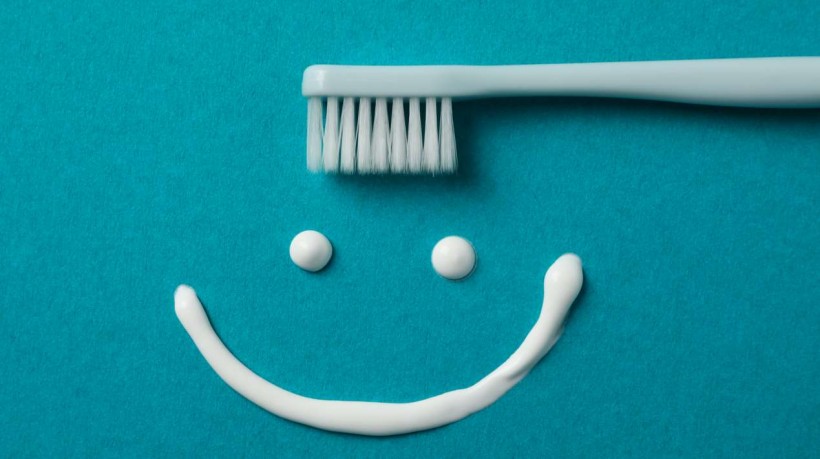What is the Best Toothpaste for Your Needs?
Warning: Undefined variable $post in /home/dietofli/public_html/wp-content/plugins/code-snippets/php/snippet-ops.php(584) : eval()'d code on line 3
Warning: Attempt to read property "ID" on null in /home/dietofli/public_html/wp-content/plugins/code-snippets/php/snippet-ops.php(584) : eval()'d code on line 3
The estimated reading time is 6 minutes
Warning: Undefined variable $post in /home/dietofli/public_html/wp-content/plugins/oxygen/component-framework/components/classes/code-block.class.php(115) : eval()'d code on line 3
Warning: Attempt to read property "ID" on null in /home/dietofli/public_html/wp-content/plugins/oxygen/component-framework/components/classes/code-block.class.php(115) : eval()'d code on line 3

"Ignore your teeth, and they'll go away" goes the age-old adage. Apart from adding to our looks and smile, our teeth help us accomplish tasks like eating and talking coherently.
Regular Care
Taking good care of teeth would help us live a long, healthy and pain-free life. So it is advisable to maintain good oral and dental hygiene routine and make cleaning teeth a compulsory everyday affair. Routine professional care is also a necessity to keep your teeth healthy and to avoid discomfort caused due to cavities, plaque build-up, and decay.
A good option would be to make the bones and enamel stronger the natural way by incorporating and eating Calcium-rich foods.
Regular Brushing and daily gentle Flossing not only keep teeth healthy and pain-free it also keeps the breath fresh. Brushing ensures that the tooth surface is clean and even pricks out food particles sticking into the crevices and fissures between teeth. It is not advisable though to brush immediately after each meal, and the flossing too should be done without hurting the gum-line. (1)
Yellowing Teeth
In spite of reasonable care, teeth tend to go yellowish and remain not so ‘white and pearly' over time. The most common cosmetic dental procedures are whitening. It has been observed that nearly 90% of patients visiting Dentists request for tooth whitening.
Regular Tobacco use, Tea, coffee, sauces and sodas, red wine and alcohol are some primary tooth staining culprits. Tar and Nicotine from Cigarettes also create stubborn staining of teeth. Intense color pigments from these foods attach to the enamel, i.e., the white, outer part of the tooth rendering it yellowish.
Age also contributes to teeth yellowing as over the years the layer of the enamel gets thinner with wear and tear and brushing. Trauma and certain medications also cause discolouration of teeth. (2)
Whitening of teeth
This simple process will help a lot in whitening your teeth. One can either opt for the chemical based procedures or natural home care.
The most common tooth whitening agents or bleaches - hydrogen peroxide or car amide peroxide are used in toothpaste and gels to break stains into smaller pieces thus making the yellow tinge less concentrated and lighter and leave the teeth looking brighter.
Weigh your options well
It is proposed to measure the advantages and disadvantages of every alternative, before trying the bleaching kits as not every one of them will give good, satisfying results.
Tooth bleaching renders teeth sensitive and can prove to be an uncomfortable option for people who already have sensitive teeth. Moreover, results from these inexpensive tooth-whitening pastes and bleaching products are temporary and may last for a few months. Whitening is not a one-time procedure.
Natural whitening Agents
The pervading natural trends advocate the use of the non-abrasive banana peel. It can undoubtedly be tried as it is not likely to pose any threat to teeth and is without harmful side effects.
Another option is to use the natural bleaching agent – lemon juice and salt. Malice acid in Apples is also suggested as an excellent physical teeth whitening agent. Eating a crunchy apple a day can keep the dentist away. Apple cider vinegar, though an excellent whitening agent with anti-bacterial properties is more likely to erode the enamel. Per some studies, Bromelain found in Pineapples is said to have teeth whitening features but there is no evidence if eating pineapples could help whiten teeth.
Most Indians prefer swishing coconut or sesame oil in their mouth for 15–20 minutes to reduce plaque and brighten teeth. Oil pulling is said to reduce bacteria in the mouth too efficiently.
Regular tooth massage with baking soda has also been found useful in controlling bacterial growth, cleaning plaque and whitening.
It would be a better option to take a picture before and after use to notice visible changes.
Best Toothpaste for Your Needs
It would be hard to find the right product from the overwhelmingly many options available off the shelf ranging from whitening, tartar control, anti-cavity and fresh-breath options. But the fact is; everyone's teeth are different, and each requires different dental care; so no blind guesses please it is best to stick to your dentist’s directives.
A few thumb rules could help us decide on the best option for us.
Choose a paste that is certified by the country's dental association as this would mean tested and legitimate ingredients. The flavours; mint, liquorice or cinnamon, etc. do not add to your dentifrice’s effectiveness
Though a questionable ingredient, Fluoride based toothpaste with triclosan is suggested for fighting plaque, cavities, and bad breath.
The mineral fluoride coats the teeth and protects them from cavity-causing acids.
Kid-friendly toothpaste with lower fluoride content is more suitable for children. To avoid severe dental debacles, it is preferable to take expert advice.
Sensitive teeth become less irritable with regular use of kinds of toothpaste with desensitizing ingredients like strontium chloride or potassium nitrate. ‘Sensodyne' which uses Potassium nitrate as the active ingredient replaces some of the most calcium teeth by building a protective barrier. It is best to opt for toothpaste that is formulated exclusively for sensitive teeth. (3)
For those using braces, keeping the mouth clean is an additional challenge as white spots and cavities are more likely around the brackets. It is better to consult with your dentist for professional insight and preferably use higher fluoride content toothpaste.
Tartar build-up or calculus can be controlled with tartar-fighting elements like pyrophosphates or zinc citrate containing pastes.
Avoid using too sugary toothpaste as they use harmful chemicals like saccharin. Preferably opt for brands that disclose all of their ingredients and where they are sourced. Include a paste that uses "naturally sourced" fluoride to your shopping list.
All-natural herbal toothpaste can be just as effective, but it may not necessarily mean that its ingredients are all-natural. They may contain mild cleaning agents like sodium lauroyl sarcosinate.
A range of Ayurvedic 100% herbal toothpaste made from rare fruits and herbs is now available under brand names – VIcco, Herbodent, Dabur Meswak, Neem and Pomegranate rich paste by Himalaya Herbals apart from the international brands.
Author Bio: Hamza Shahzad is a freelance writer, experienced blogger. Currently, He’s working with Dental Dorks. Furthermore, Hamza assists in the business creation and control of social media content planning.














